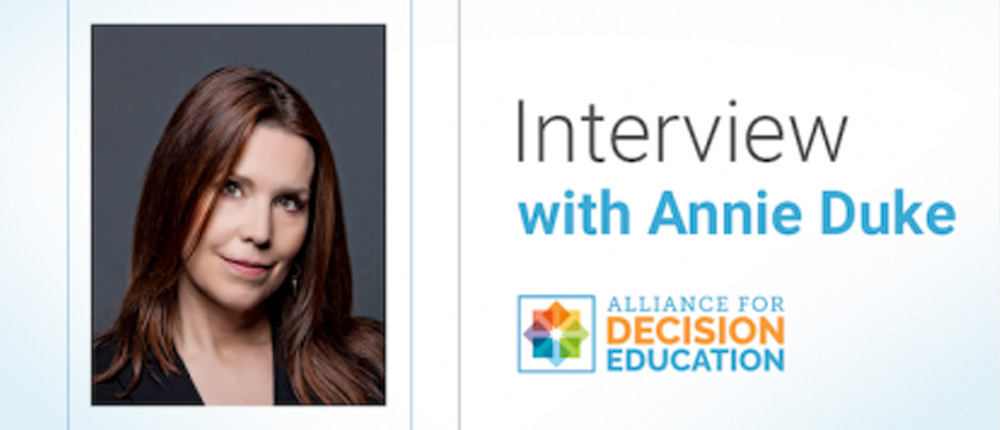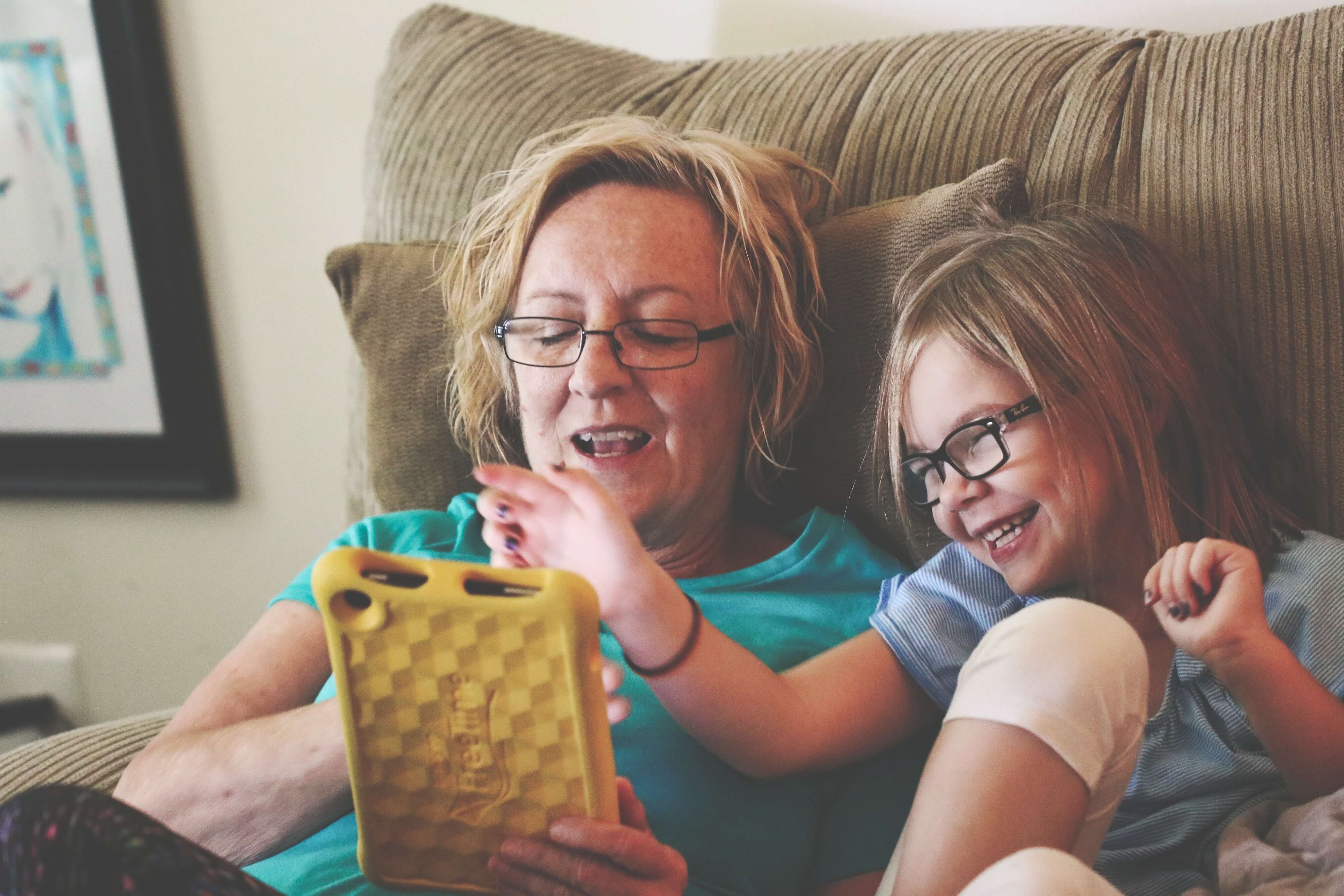Annie Duke Explains Essential Skills for Becoming a Better Decision Maker

When Annie Duke talks about helping young people become better decision makers for the long run, she doesn’t fall back on clichés about guiding them to the right path or making sure they stay out of trouble. Instead, Duke explained in a conversation with Joe Sweeney, Executive Director of the Alliance for Decision Education, how students are better equipped to make decisions that improve their lives when they learn skills for “thinking in possibilities,” practicing open-mindedness, and embracing uncertainty.
Many aspects of our lives are out of our hands, Duke acknowledged, like when we were born, who our parents are, or how other people are driving. That realization can lead us to seek solace in superstition or simply hope for the best, but Duke explained that we can be empowered when we focus on the things we are able to influence. “We don’t have control over luck, but we do have control over the quality of our decisions,” she said. “It’s the one thing that we can improve and change that actually does determine the way that your life turns out.”
Duke noted that the aphorism “You make your own luck” might be better stated as “You can make decisions that change the distribution of outcomes.” We tend to default to wishful thinking when we face uncertain futures, but Duke said there’s a more effective way to consider those situations. “For any decisions that I make, there’s lots of different ways that decision could turn out,” she said. “The better I am at figuring that stuff out—what are the possibilities?—the better I’m going to be at making decisions.”
Duke, whose graduate studies in cognitive psychology fostered her interest in decision making, also emphasized the importance of recognizing how we’re interpreting the information we’re using to make a decision and adopting a mindset of “intellectual humility.” For instance, even though Duke had a successful poker career, she believes her performance would have improved if she was more open-minded as she confronted information. She thinks “it would have been incredibly valuable” as a teenager to learn to view her own beliefs with skepticism. “You should realize that the things you believe are generally neither 100 percent true nor 100 percent false; they lie somewhere in the middle,” she said.
The earlier people learn decision skills, the better their lives are, Duke believes. She was inspired to co-found the Alliance for Decision Education with Eric Brooks in 2014 to “create a generation of people who are better decision makers than the generation that came before them.” The same skills she advocates for middle and high school students to learn guided her process of launching the nonprofit. “I’m always thinking about ‘How can I take these resources and invest them in something that’s going to have the greatest return?’,” she said. As she considers the many global issues we could be addressing, including the state of democracy, health and wellness, and the ways social media affects how we process information, Duke said, essentially, she thinks about “people’s ability to create their best life,” and she believes “at the base of all that is decision making.”
Watch the video for more of Annie Duke’s insights about how we can become better decision makers, including how she’s helping her own children use “mental time travel” to cope with the uncertainty of the pandemic, how quitting can be part of a good decision making process, and how Decision Education can release us from analysis paralysis.

